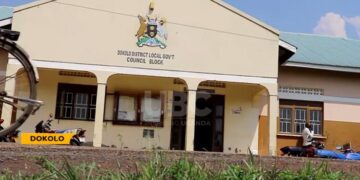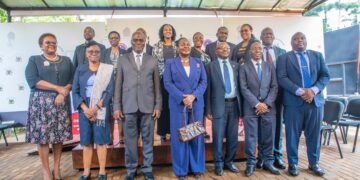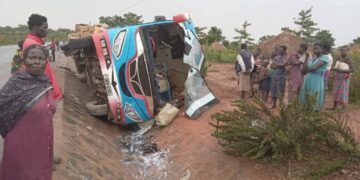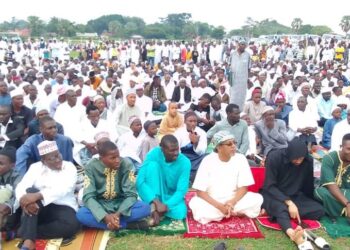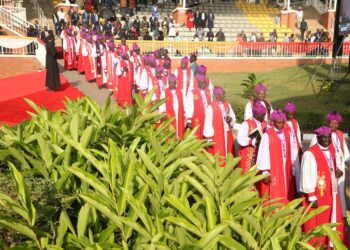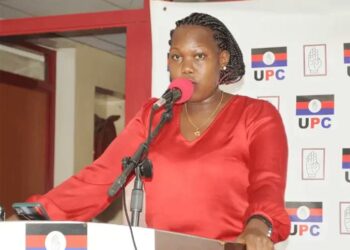By Gilbert Akampa Kakurugu,
Kabale
The goal was innitially set at 3 billion shillings, but the diocese managed to collect a significant amount during the final fundraising ceremony. Bishop Calist emphasized the university’s commitment to practical courses in fields like Agriculture and Tourism, aiming to create job opportunities and reduce unemployment in the Kigezi Sub-region.
Bishop Calist, in his inspiring speech, emphasized the university’s commitment to providing practical courses in fields like Agriculture and Tourism. These courses are designed to equip students with the necessary skills and knowledge to address the challenges faced in these industries, ultimately creating job opportunities and reducing the high unemployment rates in the Kigezi Sub-region.
Minister Baryomunsi pledged government support and highlighted the importance of partnerships with leading universities. Baryomunsi who also represented Hon Nabanja the prime minister of the republic of Uganda delivery her 10 million contribution. At the closing function, over 162.9 million was collected both in cash and pledges towards the same cause.
During the event, Minister Baryomunsi, representing the government, pledged their unwavering support for St Ignatius University. He emphasized the importance of forming partnerships with leading universities to ensure a holistic education that meets industry standards. This collaboration would provide students with extensive exposure and networking opportunities, preparing them for successful careers upon graduation.
MP Catherine Atwakiire Ndamira emphasized the need for farmers to adopt to changing weather conditions by cultivating crops with shorter maturation periods.
MP Catherine Atwakiire Ndamira, a passionate advocate for the agricultural sector, delivered a powerful message during the ceremony. She highlighted the pressing need for farmers to adopt to the ever-changing weather conditions. As climate change continues to pose threats to agricultural productivity, she urged farmers to explore cultivating crops with shorter maturation periods. By doing so, farmers would mitigate the risks associated with unpredictable weather patterns and ensure a stable food supply for the region.
The collective efforts of the Kabale Diocese, government representatives, and influential figures have not only contributed to the fundraising goal but also emphasized the importance of practical education and adaptive farming techniques. This successful event has instilled hope in the community, as they witness the commitment towards building a brighter future for the Kigezi Sub-region and empowering its residents with the necessary knowledge and skills to thrive in various industries.
















